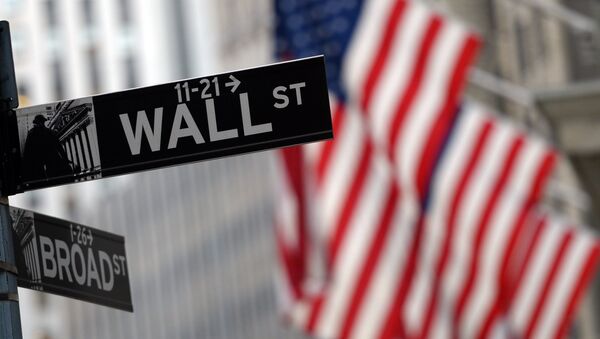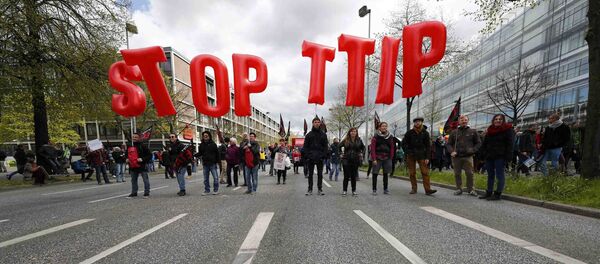Following the 2008 financial crisis, the volume of trade between Germany and Russia increased to a record 80.5 billion euros ($89.2 billion) in 2012. However, since then, the amount of goods traded by the two countries has almost halved due to the imposition of sanctions in 2014; last year Germany exported 21.7 billion euros worth of goods to Russia, and Russia exported 29.7 billion euros worth to Germany.
Wolff, the author of "Pillaging the World: The History and Politics of the IMF," said that this situation affects, above all, small- and medium-size businesses, which face financial difficulties and are easily pushed out of the market by big business.
"There are about 6,000 companies which trade with Russia, and many of these enterprises are experiencing difficulty, as the sanctions intended. Most of the [proprietors of the] companies belong to the middle class. When such enterprises experience difficulties, there are always bigger players which like to buy them," Wolff said.
"For a large global corporation, trade with Russia is a few percent of its total business, but a lot of German machine manufacturers from the middle class depend on the Russian market. These sanctions can send such a company to the wall, which is convenient for big businesses."
Wolff said that anti-Russian sanctions were imposed because they are beneficial to the US economy, which is dominated by the same Wall Street capital that dominates its politics.
"Politics is actually just an extension of the economy, and today the economy is primarily based on the finance industry. The biggest global investors are hedge funds and big banks on Wall Street, US big business. What goes on in the background sets the tone and determines what will be done politically. If, for example the EU decided not to carry out sanctions, the US would find a means to put the EU under pressure."
Sanctions and counter-sanctions have resulted in a decrease in trade between Russia and other Eastern European countries, to the advantage of US firms seeking to weaken the EU, and institute the controversial TTIP trade agreements.
"TTIP will be of tremendous benefit to US big business. If US employment law suddenly starts to dominate European companies, that is another step towards the world domination of the US. On the other hand, the Americans are in serious difficulties are the moment. They have the largest economy in the world, but this economy is in crisis."
Wolff said that US policy aims to weaken the relationship between the EU and Russia.
"The US is really worried that the EU will team up with Russia or possibly China. That is an apocalyptic scenario for the US, so it is always trying to isolate Russia and China as much as possible on the world market. Don't forget that Europe is dependent on Russian oil and gas to a large extent, and the US financial system doesn't like that."
"That's why they use instruments of destabilization, to weaken competitors on the world market. You have to look at sanctions in this context," Wolff concluded.



